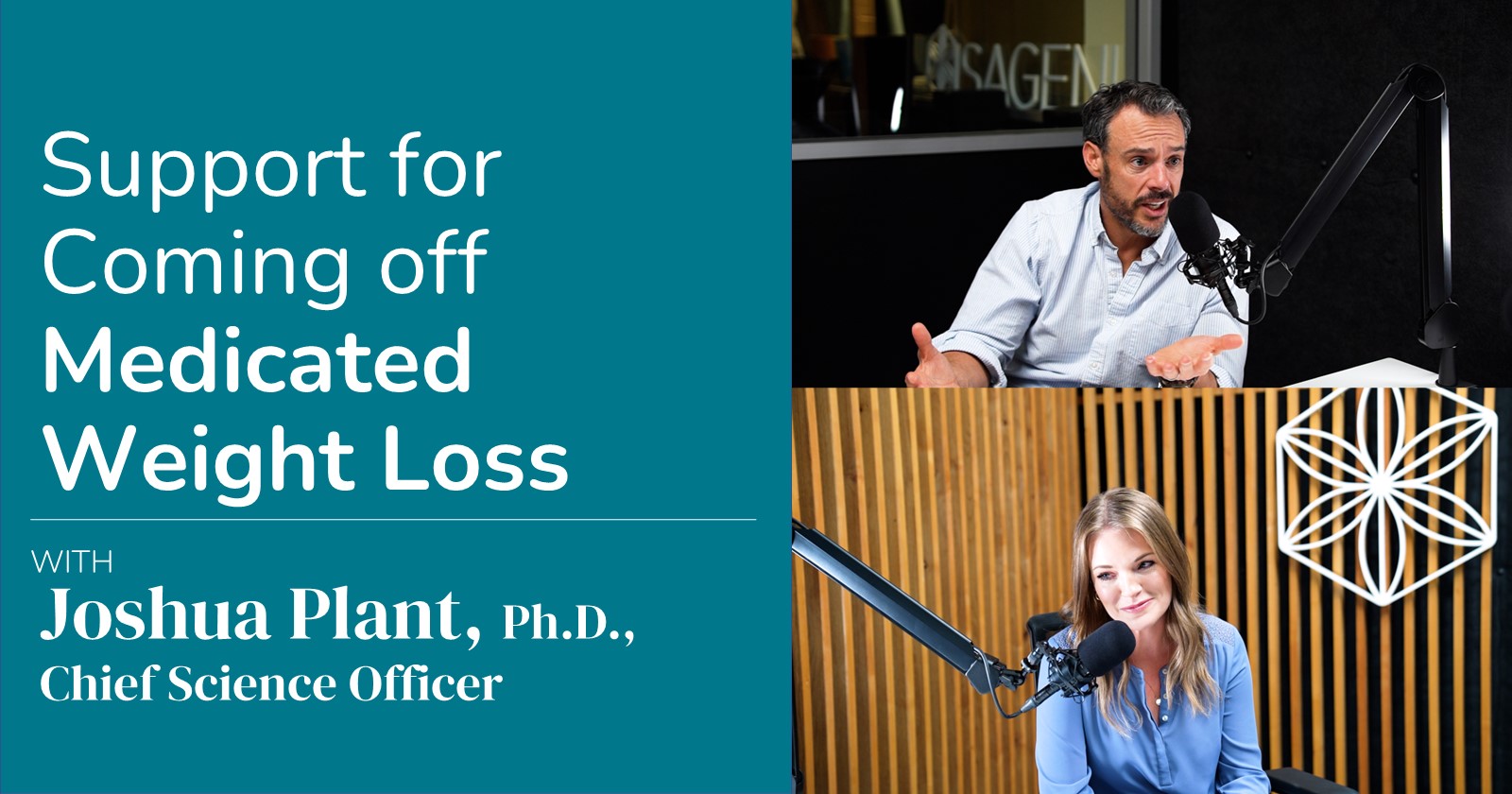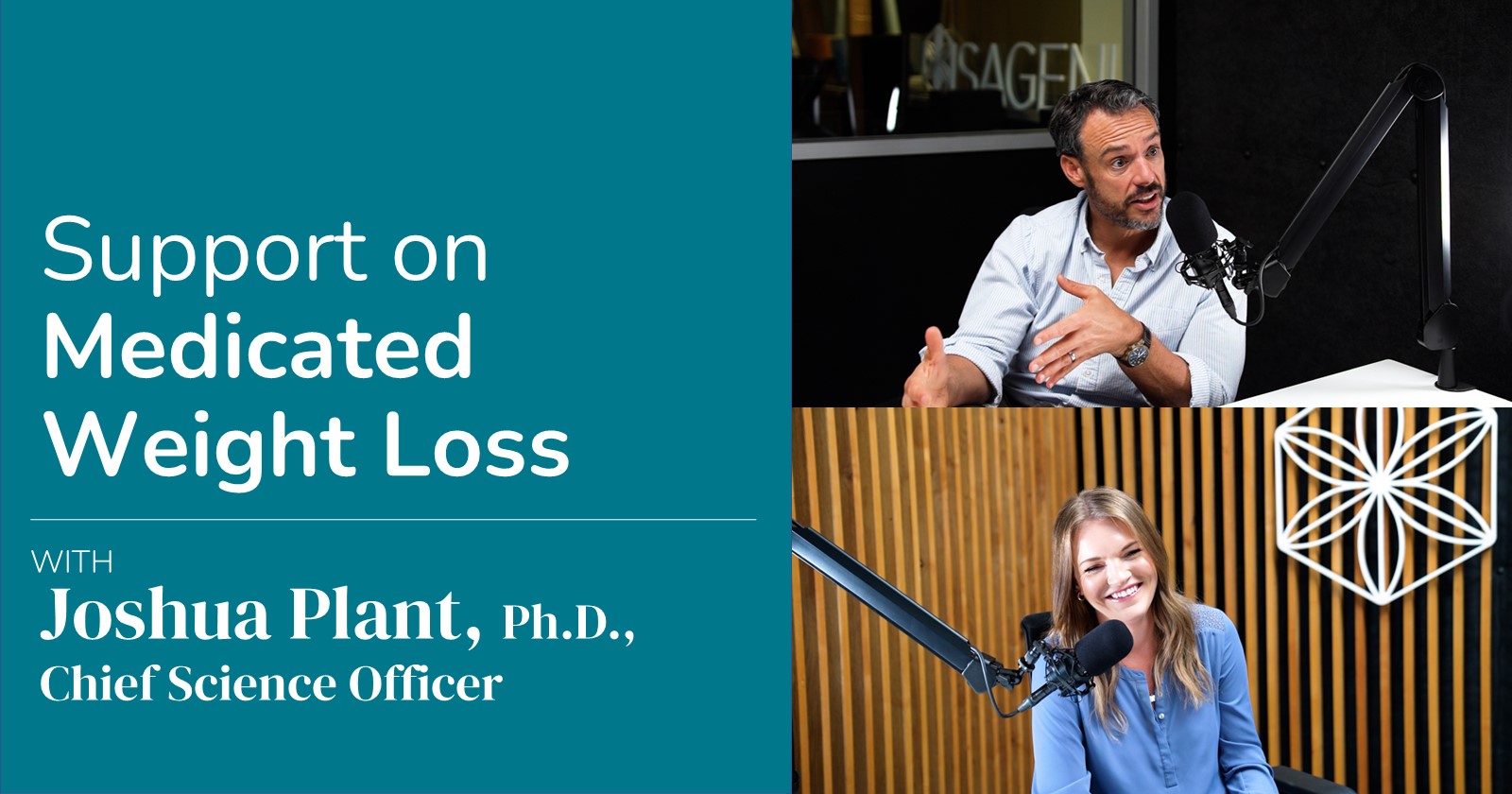Those last few pounds clinging to your midsection often feel like the most difficult pounds to lose. Fortunately, there are science-backed strategies that can help you successfully get rid of belly fat.
The goal of achieving a flat stomach may be all the motivation you need to work toward eliminating belly fat, but there are important benefits for your health, too. Carrying excess weight around your waistline has been linked to significant health risks (1). Belly fat is considered the worst kind of fat due to its association with these increased risks.
Here are three science-backed strategies to help you shed stubborn pounds and get rid of belly fat for good.
Increase Your Protein Intake
While a balanced diet is essential for a healthy lifestyle, protein is a key nutrient for promoting fat loss and stimulating muscle growth. Consuming a diet that is rich in protein has been shown to support increased metabolism, greater muscle building, enhanced weight loss, and long-term weight maintenance (2,3). You can maximize the benefits of protein for your waistline by consuming the right amount and the right type of protein at the right time.
The Right Amount: Researchers have found that 1.2-1.6 grams of protein per kilogram of body weight per day is optimal in promoting sustained weight loss (3). To reach this level, a typical woman needs approximately 90-120 grams of protein per day while a typical man needs approximately 105-140 grams per day.
The Right Type: Look for a source of protein that is high in branched chain amino acids (BCAAs). Protein that has a higher concentration of BCAAs is more effective in building muscle and supporting weight maintenance (4,5). Dairy protein, like whey, has a naturally high amount of BCAAs making it the protein choice for many (6).
The Right Time: Evenly distributing your protein intake throughout the day, otherwise known as protein pacing, has been shown to support fat loss and improve muscle strength and growth. Depending on your specific protein needs, you should aim to get 20-30 grams of protein in each meal, spaced over four to six small meals a day (7).
End Your Shake Day With the BBB
The Bedtime Belly Buster (BBB) is a simple strategy that’s intended to support your weight loss efforts with nutrition and restful sleep. The core components of the BBB include a serving of IsaPro® blended with Isagenix Fruits™ or Isagenix Greens™, that is enjoyed alongside Renewal Sleep Support™ at bedtime.
Providing your body with a serving of whey protein before bed has a thermogenic effect, which boosts your metabolic rate and can help to support weight loss (8, 9). Because inadequate sleep has been linked to weight gain, Sleep Support & Renewal spray is part of the BBB to support a restful, complete night’s sleep (10).
The BBB is also a sweet treat that can help satisfy your late-night cravings and help you avoid overindulging in less healthful alternatives.
Keep Up With Your Cleanse Days
Isagenix Cleanse Days, which are based off the science behind intermittent fasting, may have some of the most impressive scientific support when it comes to releasing belly fat. Following a full-day fasting protocol such as an Isagenix Cleanse Day has been shown to support improved body composition, loss of body fat, and benefits for improved insulin sensitivity (11, 12).
Additionally, the Isagenix System of Shake Days and Cleanse Days is backed by clinical research. One set of studies, conducted at the University of Illinois at Chicago, demonstrated that the Isagenix System produced superior results compared to a heart-healthy diet for eliminating belly fat. Participants in the Isagenix group had 56 percent greater weight loss and lost twice as much deep belly fat than those following the heart healthy diet (13, 14).
Belly fat may be the worst kind of fat, but there are science-backed strategies that can help you flatten your stomach, such as effective use of protein, the BBB, and intermittent fasting on Cleanse Days. Isagenix products provide the right tools to help you use these strategies to get rid of belly fat for good!
References:
- Jensen MD. Role of body fat distribution and the metabolic complications of obesity. J Clin Endocrinol Metab 2008;93:s57-s63.
- Leidy HJ, Clifton PM, Astrup A et al. The role of protein in weight loss and maintenance. The American Journal of Clinical Nutrition 2015;ajcn084038.
- Westerterp-Plantenga MS, Nieuwenhuizen A, Tome D, Soenen S, Westerterp KR. Dietary protein, weight loss, and weight maintenance. Annual Review of Nutrition 2009;29:21-41.
- Phillips SM. The science of muscle hypertrophy: making dietary protein count. Proc Nutr Soc 2011;70:100-3.
- Acheson KJ et al. Protein choices targeting thermogenesis and metabolism. Am J Clin Nutr. 2011 Mar;93(3):525-34. Epub 2011 Jan 12.
- Arciero PJ, Ives SJ, Norton C, Escudero D, Minicucci O, O’Brien G, Paul M, Ormsbee MJ, Miller V, Sheridan C, He F. Protein-Pacing and Multi-Component Exercise Training Improved Physical Performance Outcomes in Exercise-Trained Women: PRISE 3 Study. Nutrients 2016, 8(6), 332; doi:10.3390/nu8060332
- Arciero PJ, Ormsbee MJ, Gentile CL, Nindl BC, Brestoff JR & Ruby M. Increased protein intake and meal frequency reduces abdominal fat during energy balance and energy deficit. Obesity. 2013 Jul; 21(7):1357-66.
- Madzima TA, Panton LB, Fretti SK, Kinsey AW, and Ormsbee MJ. Night-time consumption of protein or carbohydrate results in increased morning resting energy expenditure in active college-aged men. Brit J Nutr. 2014 Jan; 111(1):71-77. doi:10.1017/S000711451300192X
- Kinsey AW, Eddy WR, Madzima TA, Panton LB, Arciero PJ, Kim J, and Ormsbee MJ. Influence of night-time protein and carbohydrate intake on appetite and cardiometabolic risk in sedentary overweight and obese women. Brit J Nutr. 2014 Aug 14; 112(3):320-7. doi:10.1017/S0007114514001068
- Spaeth AM, Dinges DF, Goel N. Effects of Experimental Sleep Restriction on Weight Gain, Caloric Intake, and Meal Timing in Healthy Adults. Sleep. 2013 Jul 1;36(7):981-990.
- Halberg N, Henriksen M, Söderhamn N, Stallknecht B, Ploug T, Schjerling P, Dela F. Effect of intermittent fasting and refeeding on insulin action in healthy men. J Appl Physiol. 2005 Dec;99(6):2128-36.
- Tinsley GM, La Bounty PM. Effects of intermittent fasting on body composition and clinical health markers in humans. Nutr Rev. 2015 Oct;73(10):661-74. doi: 10.1093/nutrit/nuv041. Epub 2015 Sep 15.
- Klempel MC, Kroeger CM, Bhutani S, Trepanowski JF, Varady KA. Intermittent fasting combined with calorie restriction is effective for weight loss and cardio-protection in obese women. Nutr J. 2012 Nov 21;11:98.
- Kroeger CM, Klempel MC, Bhutani S et al. Improvement in coronary heart disease risk factors during an intermittent fasting/calorie restriction regimen: Relationship to adipokine modulations. Nutr Metab 2012;9:98.





